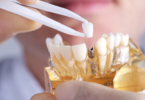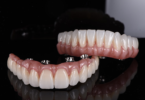Depending on which antibiotic you’re prescribed, you may want to avoid alcohol. Examples of antibiotics you’d want to avoid mixing alcohol with include metronidazole, tinidazole, sulfamethoxazole, and trimethoprim. These drugs, when mixed with alcohol, can cause adverse effects such as headache, vomiting, and increased heart rate, via Mayo Clinic. Note that this is not a comprehensive list and these drugs may go by different brand names. When considering any potential interactions, seek counsel from your doctor or pharmacist regarding the impacts of specific drugs. Even if you’re not prescribed a drug that directly interacts with alcohol, negative side effects may feel enhanced. Because both antibiotics and alcohol can cause nausea and dizziness, both taken at the same time can intensify the effects. Health experts recommend it’s important to read labels and follow the guidance, via Healthline. Such guidance can help ensure our safety throughout the duration of the treatment protocol.
Other risk factors and health implications

While some antibiotics carry higher risks when consumed with alcohol, others don’t have dangerous interaction warnings on their labels. In fact, there are five commonly prescribed antibiotics in the U.S. known as ciprofloxacin, azithromycin, amoxicillin-clavulanate, amoxicillin, and cephalexin, none of which warn against alcohol co-consumption, via New York Times. Further, many over-the-counter medications designed to combat cold and flu symptoms contain low levels of alcohol. There currently exist no warnings against using such cold and flu products in conjunction with antibiotics. Regardless of whether or not health warnings exist on labels, if you have concerns, don’t hesitate to speak with your doctor. And while experts suggest that health risks are likely low when mixing alcohol and the aforementioned antibiotics, mixing the two can still have other negative health consequences, such as increasing the amount of time it takes to recover from illness. Alcohol has also been shown to impact sleep quality, an important factor for anyone in recovery mode. In order to give your body the best chance of swift recovery, consider waiting until after you complete your medication to have a drink, via Healthline.






